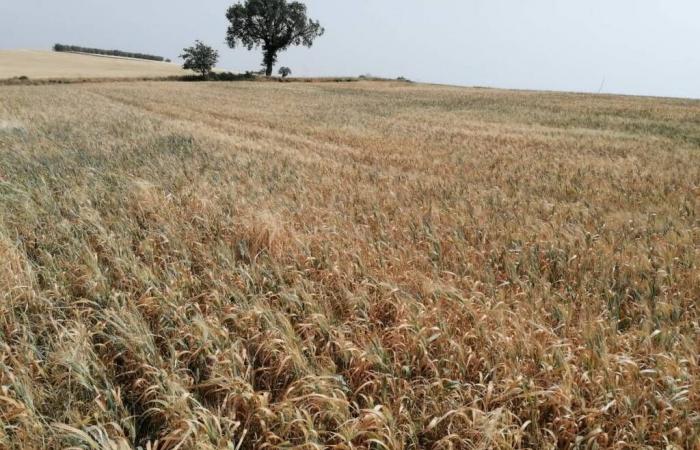The production of cereals, oil, fruit and vegetables and grapes is at historic lows. Legacoop Agroalimentare launches yet another cry of alarm
The production of cereals, oil, fruit and vegetables and grapes in Basilicata is at historic lows. The crisis is deep and general, affecting all sectors of agriculture. It is Paolo Colonna, regional manager of Legacoop Agroalimentare, who raises yet another cry of alarm.
In these days of the height of the cereal campaign, alarming data have been recorded: the average production of durum wheat does not go beyond 10-15 quintals per hectare, with negative peaks even at 5 quintals in some internal areas of Matera. “Compared to last year, over 3 million quintals of durum wheat have already been lost throughout the region”, reports Maurizio Carretta, president of Unità peasant, the historic agricultural cooperative of Vulture. “The current prices do not comfort our members at all. Added to the lack of production is the halving of the support deriving from the CAP received in recent weeks. We are engulfed in a spiral of rapid business failure.”
“The situation is close to the point of no return,” declares Colonna. In addition to the cereal sector, the Lucanian olive sector is also compromised. The prolonged drought and the soaring temperatures in spring did not favor flowering. “The anomalous situation suggests the closure of almost all processing plants for the next harvesting campaign”. “Not even fruit and vegetables are saved,” continues Colonna. “Production has not been completed in the orchards, with very limited water resources we are thinking more about saving the plantations”.
“The crucial and worrying issue is precisely the management of water resources”, adds the manager of Legacoop Agroalimentare. “If we are to continue farming in this region with a minimum of planning, we need to start managing the water from the basins without further delay. Why not take advantage of the absence of rain for reclamation and cleaning works to increase the storage capacity of the reservoirs, with the parallel restructuring of the distribution network reduced to a sieve? Every day there are breakdowns of the systems that leave entire areas in full production dry.”
“This is not the time for controversy. We need to provide solutions and identify new paths for Lucanian agriculture. We need to qualify aggregation processes and move towards a differentiation of production, promote alternative opportunities to traditional crops in the Mediterranean, given that the latitude of some crops is increasingly increasing”. “Multifunctionality can represent one of the elements to overcome this period of crisis. Next month, as Legacoop Agroalimentare, we will propose to our cooperatives and producers new paths to earn income and try to get out of this enormously difficult situation”. “At the same time – concludes Paolo Colonna – the Green Table will have to forcefully proceed with the request for recognition of the state of calamity and the further establishment of a Crisis Table”.






